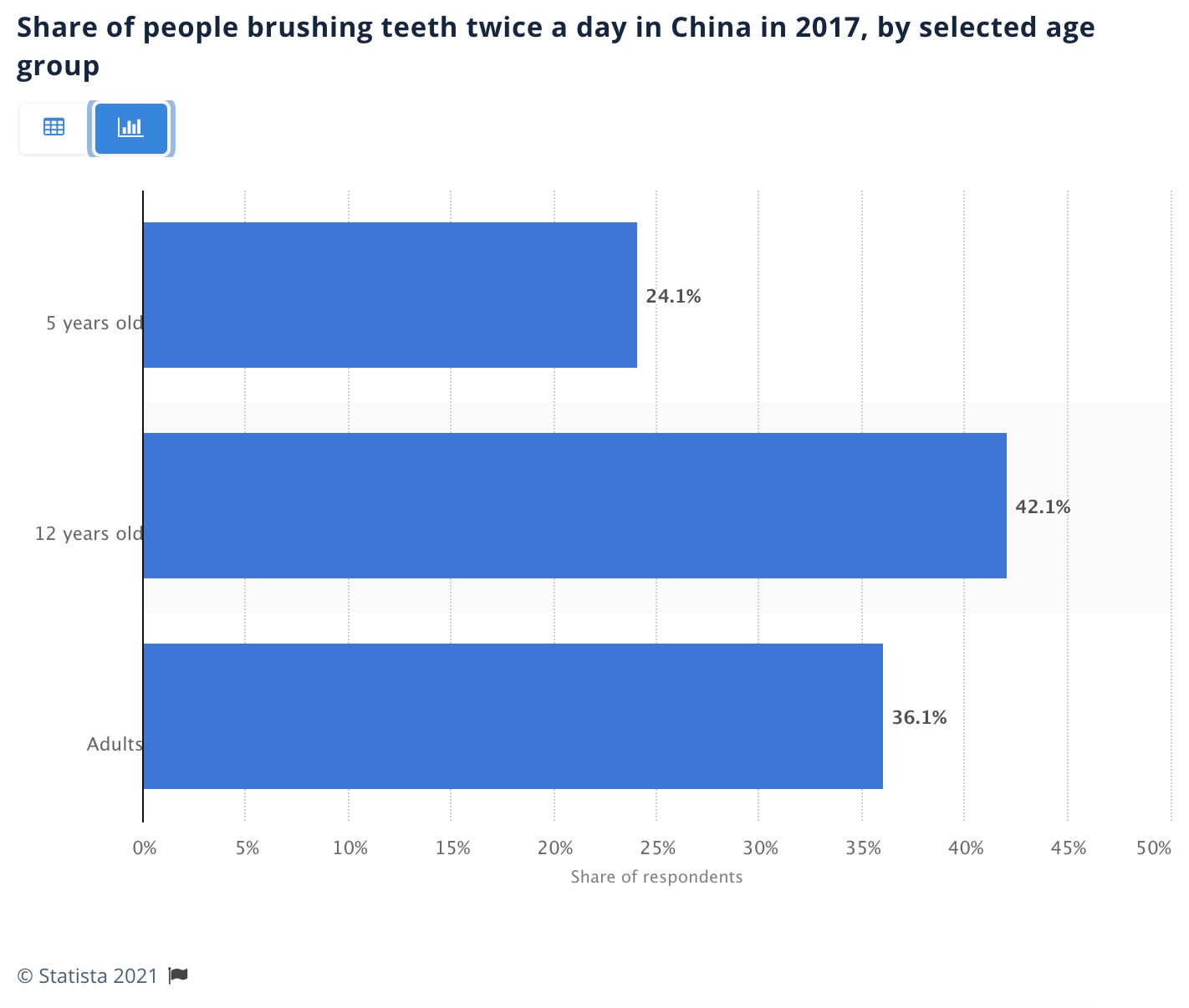Eating sweets: The Swedish tradition 'Lördagsgodis' that prevents dental caries
Would you rather eat sweets once a week or loose your teeth? This is the Swedish concept that generates debate around the world in regards to over-consumption of sugar.

How much sweets do you eat in a week?
Swedish children are only allowed to eat goodies on Saturdays. This is where the name 'Lördagsgodis' comes from, 'Lördag' meaning Saturday and 'goodis' are sweets.
The Swedes believe that eating a lot of sweets on one day of the week is healthier than eating sweets the whole week.
This tradition was introduced because 99% of the Swedish population had dental caries in 1942.
The Swedish Government funded a public investigation into finding out the causes of dental caries.
The Vipeholm Study was initiated by several psychologists in Lund, Sweden in 1947.
Their participants were 140 severely mentally ill patients. One group received 24 toffees a day to invoke dental decay. The aim of the study was to find the relationship between carbohydrates and tooth decay.
In the 20th Century it was a struggle to receive dental care because there were not enough dentists at the time for the amount of people that needed dental care.

Vipeholm Study 1908, Photographer unknown
Vipeholm Study 1908, Photographer unknown
They ultimately found that the number of unfilled cavities had increased from 11.238 to 13,363 and there was an increase of missing teeth increased in the group with the additional carbohydrate consumption.
The results of the study triggered the tradition of minimizing the consumption of sweets to one day in the week, especially for children.
Dr Mats Trulsson is a senior dentist and professor at the Department of Dentistry at Karolinska Institutet in Sweden, who commented on the history of Swedish Dentistry. It didn't start until the 19th Century and developed into the 20th Century. Sugar consumption was in a career aspect "catastrophic" in the early 20th Century which delved itself into a political issue because it was a "danger to society".
Children would miss school because of their tooth ache, it became clear that this issue had to be solved. Research projects initiated by the Swedish government like the Vipeholm study aimed to tackle the issue from its root.
"The longer you have sugar in your mouth, the worse it is"

Picture credit: Isabelle Hellstedt
Picture credit: Isabelle Hellstedt
National Dental Services and Fluoride projects were initiated as a result of all the research that was conducted.
The U.S Centers for Disease Control and Prevention (CDC) has found that drinking fluoridated water keeps teeth strong and reduces tooth decay by 25% in children and adults.
Following the research conducted, it was found that eating candy only on Saturday would decrease tooth decay. Thus, eating less sugar throughout the week. Additionally, brushing teeth twice a day with fluoride toothpaste became a routine for the whole population in Sweden.
In China for example it is less common for people to brush their teeth twice a day. According to Statistia.com only 36% of adults do it twice per day, stated by a survey conducted in 2017.

Statista.com
Statista.com
Trulsson states that Sweden is "among the best in the world" when it comes to healthy teeth.

Ipsos MORI, Market research company
Ipsos MORI, Market research company
The graph indicates that Sweden has great access to Dental health; 5th in the world with Germany leading the 27 selected world countries.
Yngve Ericsson who was a researcher at Karolinska Instituet in Sweden contributed to the improvement in dental health with a study in 1961. His analysis helped develop core understanding of adding fluoride into toothpaste.
What is Flouride?
- It is a naturally occurring mineral that is found in food, drinks and soil as well as drinking water.
- It helps prevent tooth decay and is often put in toothpastes
- It strengthens the tooth enamel to make it resistant to tooth decay & reduces the amount of acid that bacteria produce on teeth

Picture credit: Isabelle Hellstedt
Picture credit: Isabelle Hellstedt
Nicole Burska a British Nutritionist acknowledges that sugar consumption is traditionally "a way of enjoying life's pleasure." We crave chocolates and sweets when we are stressed and or feel down. She expresses her concern whether children in Sweden are taught how to manage stress - the idea of; "You are only allowed to experience life's pleasure once a week".

Jordgubbastårta a Swedish strawberry cake. Picture credit: Isabelle Hellstedt
Jordgubbastårta a Swedish strawberry cake. Picture credit: Isabelle Hellstedt
She thinks it would be more beneficial for children to learn about healthy foods; like home-made desserts made from fruits, dark chocolate nuts and smoothies etc. She is confident that this would reduce the need to consume processed sugars altogether.
A British Dental Professor Martin Addy at Bristol University explains the scientific principle of the bacteria "Streptococcus mutants". The metabolism sugars that causes dental caries are not able to fight all the sugar that is consumed at once. It is however able to process small doses of sugar over a longer period of time. This suggests that Sweet Saturday is a lot more healthy for your teeth than having an intake of sugar every day of the week.

Picture credit: Isabelle Hellstedt
Picture credit: Isabelle Hellstedt




Credit: Isabelle Hellstedt
Credit: Isabelle Hellstedt


UK and many other countries worldwide have tackled the over consumption of sugar with the 'Sugar Tax'.
The 'Sugar Tax' introduced April 2018, has aimed to tackle childhood obesity by taxing manufacturers of soft drinks forcing them to reduce the sugar.
Norway lead the way towards sugar tax with having introduced it in 1981 and since then 47 more countries and states have introduced it. In Europe, only 6 (including UK) have a sugar tax and other countries here.
The World Health Organization recommends the taxation of sugar sweetened beverages. This would not only improve the risk of obesity in children but also prevent tooth decay.
The UK soft drinks industry levy says drinks that have more than 8g of sugar per 100 ml will be taxed £0.24 per liter. £0.18 per liter will be taxed on drinks that have more than 5g sugar. Any less than that is not taxed.
Nicole Burska a British Nutritionist explains that "addressing the root causes of overconsumption of sugar would be more affective" rather than the sugar tax.
She suggests that processed sweets should be removed from shelves to prevent "impulse buying". Educating children and adults will be the step toward a healthy way of life.

picture credit: Isabelle Hellstedt
picture credit: Isabelle Hellstedt

Picture Credit: Isabelle Hellstedt
Picture Credit: Isabelle Hellstedt
"Sugar is as addictive as cocaine" Nicole Burska
The Food and Drug Administration recommends no more than 10% of total calorie intake should be from free sugar.
There are different sugars; 'free sugars' are chocolate and candy and there are sugars that occur naturally; in fruits, milk and vegetables do not count as 'free sugars' The most damaging for teeth is the added sugars.
Sweden just like the World Health Organization (WHO) recommends a maximum intake of 10% of total energy intake from added sugars.
Nicole Burska comments that sugars from processed foods have the ability to spike blood sugar levels. This is why people feel a "slight 'high' followed by a 'low'". Children may feel 'hyper' with their behavior and will be followed by a "crash" into "poor listening skills, bead behavior, inability and even tantrums."

Picture credit: Isabelle Hellstedt
Picture credit: Isabelle Hellstedt
Tooth decay & Sugar
Free sugars are the main cause for tooth decay. According the WHO 2.3 billion people suffer from caries and more than 530 million children suffer from caries of their primary teeth.
This is most common in low- and middle-income countries, as they live in urbanized conditions that cause vulnerability for oral diseases. A reason for that can be the lack of fluoride in the water supply and toothpastes, which then again cannot protect oral health which cannot be treated because there are not enough oral health services in such communities. The consumption of alcohol and Tobacco is also a leading factor to deteriorating oral health.

Picture Credit: Isabelle Hellstedt
Picture Credit: Isabelle Hellstedt
Lördagsgodis is an important part of Sweden‘s traditions. It was a response to the deteriorating oral health before, during and after the Second World War. Children can become addicted to sugar which is a concern, a healthy diet has to be the priority to keep the oral health stable. Some countries like the UK have introduced the ‘sugar tax’ to tackle the over-consumption of sugars. There has been a great push on oral hygienic products with fluoride. Through a lot of research it was made possible to prevent dental caries. Nevertheless, there still are issues with minorities all over the world who are vulnerable for oral diseases. Through education on healthy diets and oral health this issue can be improved.
